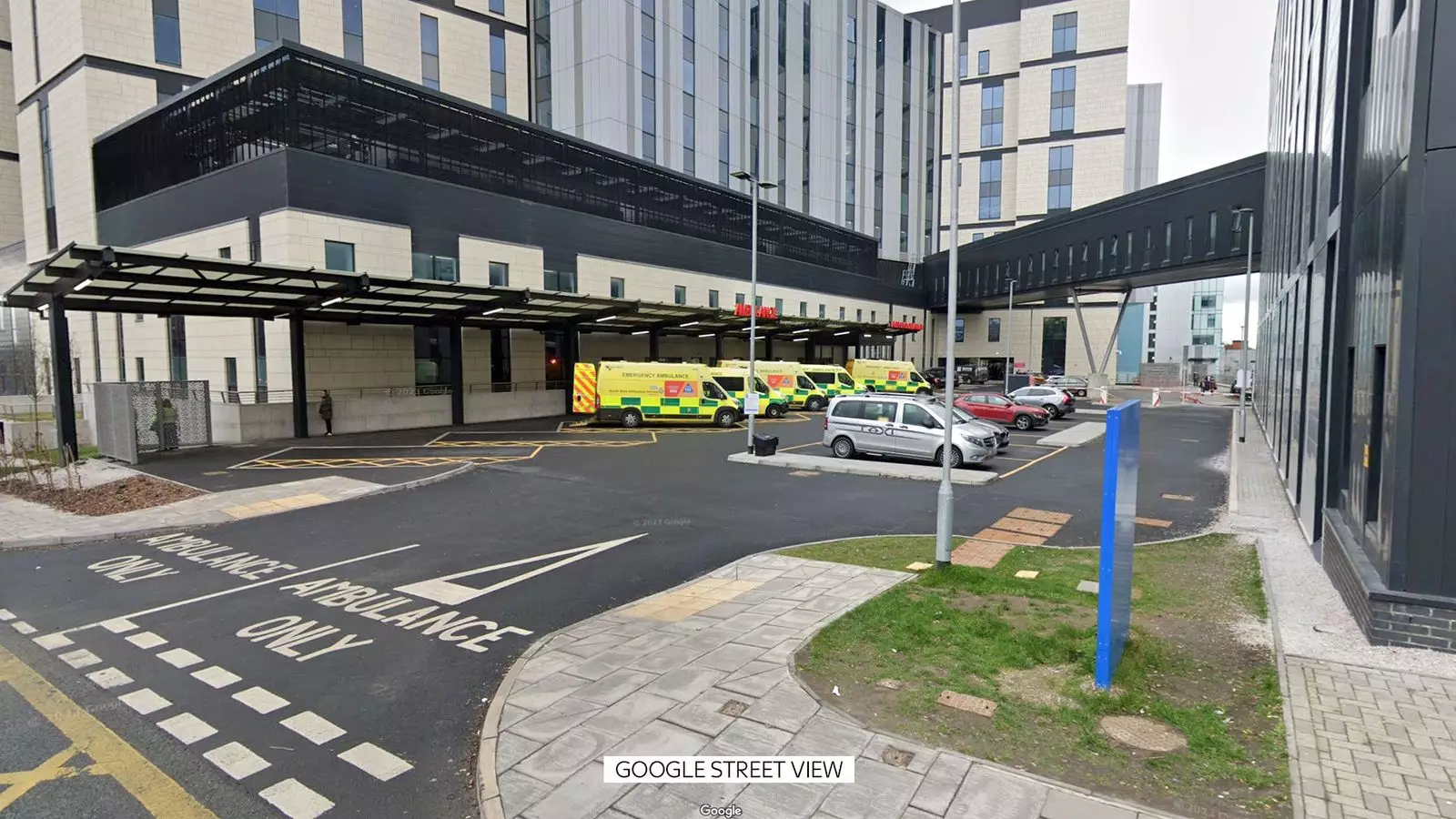The Royal Liverpool University Hospital has found itself at the center of a healthcare crisis, officially designating a critical incident due to unprecedented demand on its Accident and Emergency (A&E) services. In recent weeks, the hospital has experienced a noticeable increase in patients presenting with flu and respiratory illnesses, raising alarms for both healthcare providers and public health officials. NHS data reveals an alarming fourfold increase in flu-related hospitalizations across England over the past month, underscoring the strain on our healthcare system.
The implications of this surge are multifaceted, affecting not only patient care but also the operational capabilities of healthcare facilities. Hospitals typically operate under significant pressure, and when faced with such overwhelming demand, the risk of compromising patient safety increases dramatically.
Hospital’s Response and Community Support
In response to this critical situation, the Royal Liverpool University Hospital asserts that it has a “comprehensive plan” to navigate these challenging conditions. This proactive approach is essential to manage patient flow effectively, particularly when resources are stretched. The hospital’s spokesperson indicated a collaborative effort with partner organizations to facilitate the timely and safe discharge of medically fit patients. However, this also highlights the reality that many patients may face delays in receiving care, as the hospital prioritizes the most critically ill.
In light of the situation, non-emergency cases are strongly advised to explore alternative care options, such as consulting a general practitioner, utilizing walk-in centers, or seeking guidance through the 111 service. This strategic redirection of patients is crucial to alleviating some of the pressure on A&E departments, allowing emergency services to focus on those in dire need of immediate medical intervention.
The Bigger Picture: A Nationwide Healthcare Challenge
The critical incident at Royal Liverpool is a reflection of a broader trend seen across the National Health Service (NHS). Just a few days prior, the NHS Cornwall and Isles of Scilly Integrated Care Board echoed these concerns, reporting an alarming increase in inpatient numbers. The board’s appeal for individuals suffering from flu symptoms to refrain from visiting A&E speaks volumes about the challenges faced in emergency care environments nationwide.
Adding complexity to the healthcare landscape this winter is the looming threat of a “quad-demic,” characterized by the simultaneous circulation of flu, norovirus, COVID-19, and RSV. This reality calls for public awareness and preventative measures, such as vaccinations against flu, COVID-19, and RSV. It highlights the essential role vaccinations play in mitigating the impact of respiratory illnesses and maintaining healthcare stability.
As the Royal Liverpool University Hospital grapples with this critical incident, it serves as a stark reminder of the vulnerabilities within our healthcare system. The current congestion in emergency departments and the rising number of patients reflect not just a local issue but a systemic challenge that requires collective effort. Public cooperation in seeking appropriate care serves as a key component in alleviating almost overwhelming strain on healthcare resources. By working together, the community can help protect both its members and the healthcare system from further instability.


Leave a Reply